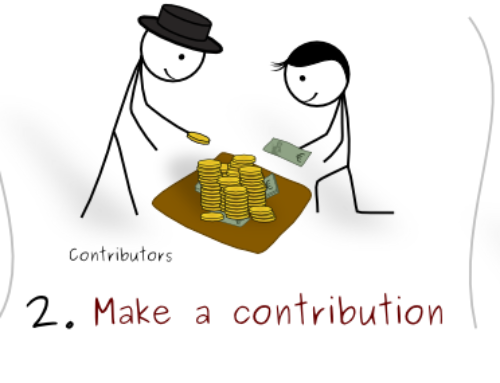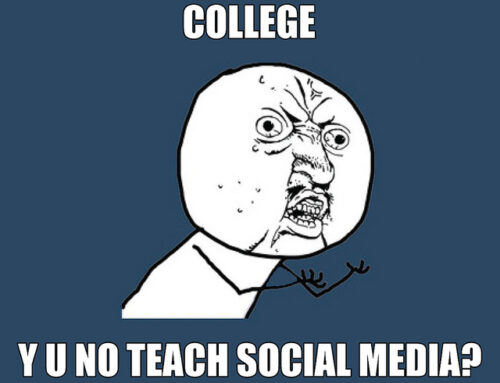We can study Ogilvy’s successful advertising campaigns to learn how to persuade prospects, influence readers, and create memorable, evergreen content. But “The Father of Advertising” also has plenty to teach us about productivity, branding, research, and ambition.
Extract from the article by: Beth Hayden
Let’s look at some things David Ogilvy had to say, and see what we can learn from each of them.
On creativity and creative process
In the modern world of business, it is useless to be a creative, original thinker unless you can also sell what you create.
Cleverness doesn’t sell products and services. Original thinking in marketing is great, but not just for the sake of being witty or clever. If you aren’t thinking about connecting with your audience, building trust and selling your products or services when you sit down to write marketing copy, you need to re-examine your motivations.
Big ideas come from the unconscious. This is true in art, in science, and in advertising. But your unconscious has to be well informed, or your idea will be irrelevant. Stuff your conscious mind with information, then unhook your rational thought process. You can help this process by going for a long walk, or taking a hot bath, or drinking half a pint of claret. Suddenly, if the telephone line from your unconscious is open, a big idea wells up within you.
Ogilvy wholeheartedly believed in research, and he was always prepared before sitting down to write. Learn everything you can before you write — then unleash your unconscious mind, and see what bubbles up.
If you have all the research, all the ground rules, all the directives, all the data — it doesn’t mean the ad is written. Then you’ve got to close the door and write something — that is the moment of truth which we all try to postpone as long as possible.
Bottom line — inspiration comes to those who keep butts in chairs. Ogilvy’s contemporary, Eugene Schwartz, had a simple technique for eliminating distraction — he worked in blocks of 33 minutes, using a timer to structure his writing time.
Talent, I believe, is most likely to be found among nonconformists, dissenters, and rebels.
Think different — the best thinkers often do.
On research and testing
If you’re trying to persuade people to do something, or buy something, it seems to me you should use their language, the language they use every day, the language in which they think. We try to write in the vernacular.
It is vitally important that we research and understand how our prospect think, speak, and search, so that we can use that language in our headlines, blog posts, sales letters, and eBooks. The better we understand how our readers think, the better we’ll be able to connect with them.
Advertising people who ignore research are as dangerous as generals who ignore decodes of enemy signals.
Never stop testing, and your advertising will never stop improving.
Make sure you’re making use of those testing methods on a regular basis, and always remember that the more you test, the better your writing will be.
On why we write
Do not … address your readers as though they were gathered together in a stadium. When people read your copy, they are alone. Pretend you are writing to each of them a letter on behalf of your client.
On standing out
There isn’t any significant difference between the various brands of whiskey, or cigarettes or beer. They are all about the same. And so are the cake mixes and the detergents, and the margarines… The manufacturer who dedicates his advertising to building the most sharply defined personality for his brand will get the largest share of the market at the highest profit.
Ogilvy on headlines
On the average, five times as many people read the headline as read the body copy. When you have written your headline, you have spent eighty cents out of your dollar.
Never use tricky or irrelevant headlines… People read too fast to figure out what you are trying to say.
Simple headlines are better. Always remember that on average, 8 out of 10 people will read headline copy, but only 2 out of 10 will read the rest of the piece. If your headline is confusing, tricky, or awkward, they won’t continue reading.
On greatness
Play to win, but enjoy the fun.
Remember to keep things in perspective — Let’s make sure that ambition doesn’t crowd out true enjoyment of our craft.
Don’t bunt. Aim out of the ball park. Aim for the company of immortals.
So aim high. Make sure you’re always thinking, how can I make more of a difference? How can I think bigger?
David Ogilvy’s legacy
Ogilvy’s work continues to inspire us, and his world-famous marketing campaigns live on. But some of Ogilvy’s best lessons are about how he approached his creative life, and how he aimed for greatness instead of settling for second best.
Who are your marketing heroes? Who inspires you to work harder, dream bigger and aim out of the ball park?
Fot the full article visit: 13 Timeless Lessons from the Father of Advertising | Copyblogger.
About the Author: Beth Hayden is a Senior Staff Writer for Copyblogger Media. Get more from Beth on Twitter and Pinterest.





